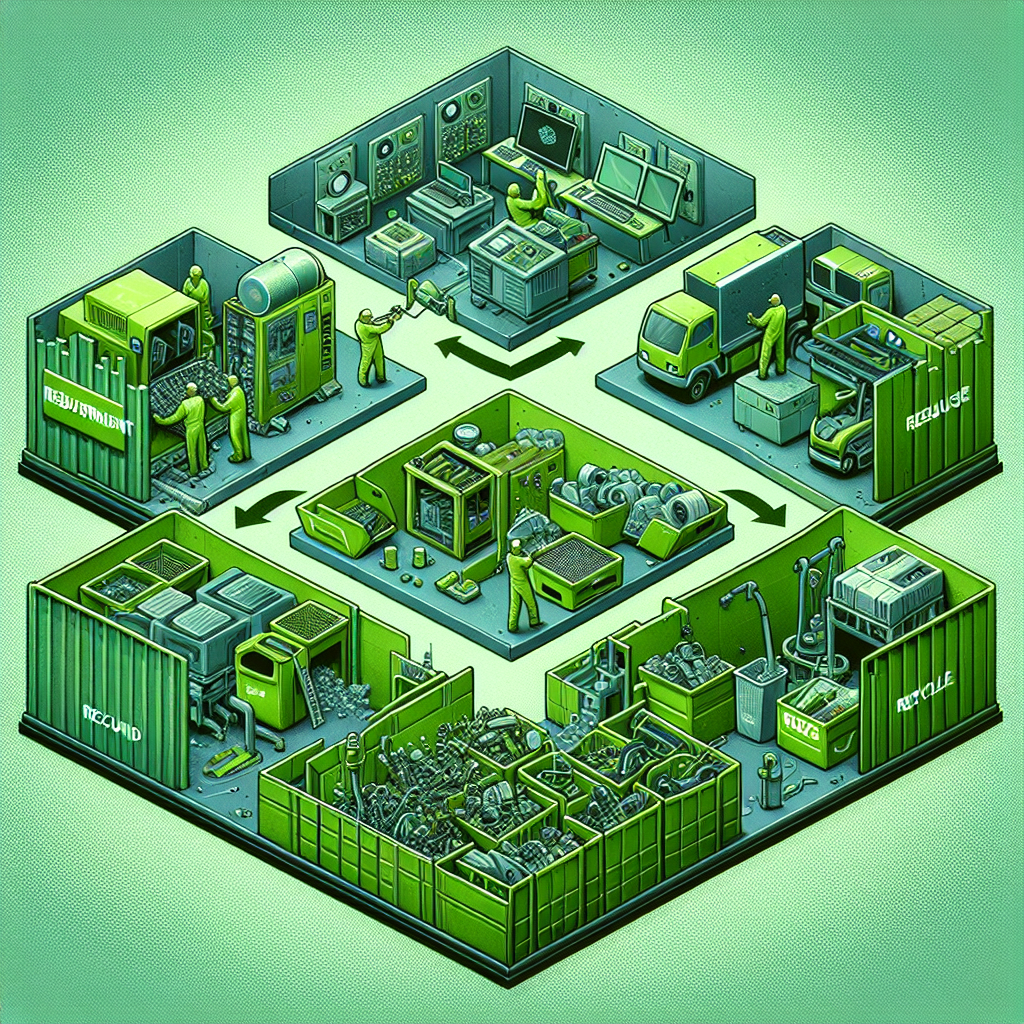Blog Ecobraz Eigre

The differences between reconditioning, reusing and recycling - what is allowed by law
Understanding Reconditioning
Reconditioning is the restoration of used or defective products to make them functional again, with the guarantee of quality similar to a new product. This practice is common in electronic and automotive equipment, where parts are replaced or repaired to extend the item's useful life.
What Is Reuse
Reuse implies using parts or materials from one product to manufacture another, without necessarily restoring the original item. For example, electronic components or plastic materials can be removed for use in new objects. This practice enhances the circular economy and reduces the demand for virgin raw materials.
Recycling and How It Works
Recycling is the process of transforming discarded materials into raw materials for the manufacture of new products. It involves collecting, processing and reusing waste, helping to reduce environmental impact. Unlike reconditioning and reuse, recycling deals with the chemical or physical treatment of materials.
Legal Aspects of Reconditioning
Reconditioning is regulated by specific standards that guarantee the safety and quality of reconditioned products. In Brazil, bodies such as Inmetro establish mandatory criteria for the certification of these items, ensuring that they meet technical and consumer standards.
Legislation on Reuse
While reuse is a sustainable practice, it must comply with environmental and health legislation, especially when dealing with hazardous or electronic waste. Law No. 12.305/2010, which establishes the National Solid Waste Policy, encourages reuse as long as good management and correct disposal practices are adopted.
What the Law Says About Recycling
Recycling is widely encouraged by environmental legislation. Regulations require that collection and treatment processes follow standards that minimize environmental impacts. Recycling companies and plants must be licensed and comply with the rules of the National Solid Waste Policy in order to operate legally.
Why Complying with Legislation is Essential
Complying with legal regulations is fundamental to guaranteeing environmental sustainability, consumer safety and social responsibility. In addition, compliance with the law avoids sanctions and contributes to building a more efficient and ethical circular economic model.
Final Thoughts
Each of the practices - reconditioning, reuse and recycling - has its own characteristics and specific regulations. Understanding their differences and respecting legislation is the way to promote the conscious use of resources and the reduction of environmental impacts.

Deixe um comentário
O seu endereço de e-mail não será publicado. Campos obrigatórios são marcados com *